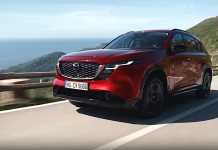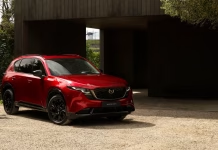Japanese automobile manufacturer, Toyota Motor Corp. lost its title as the world’s best-selling automaker to Volkswagen Group, ending the Japanese company’s four-year reign, as demand for its flagship Camry sedan waned in the U.S. and sales in China expanded at a slower pace than the overall market.
Toyota’s global sales, including its Lexus, Daihatsu and Hino brands, rose 0.2 percent to 10.2 million vehicles in 2016, the Japanese automaker said on Monday. That fell short of VW Group’s record 10.3 million cars, trucks and buses, a 3.8 percent gain.
By another key yardstick, however, Toyota continues to outperform its European rival. Toyota’s profit was more than double Volkswagen’s in the six months through September, according to data compiled by Bloomberg. Both the companies haven’t reported earnings for the quarter ended Dec. 31.
Toyota’s sales last year lagged behind Volkswagen mainly due to the changing dynamics in the both automakers’ largest overseas markets: the U.S. and China. While the Japanese company was hampered by a broad U.S. auto industry sales slowdown, VW benefited from its growth in China and a tax cut there that has stoked consumer demand since 2015.
Looking ahead, Toyota must contend with possible trade tensions as U.S. President Donald Trump pressures foreign automakers to make more cars and trucks in the U.S. VW, meanwhile, faces decelerating demand in China as the tax reduction expires.
Since his inauguration, Trump has withdrawn the U.S. from the Trans-Pacific Partnership trade accord, reaffirmed a campaign promise to renegotiate the North American Free Trade Agreement involving Mexico and met with automakers to persuade them to keep production within the U.S.
Toyota will invest $10 billion in the U.S. over the next five years, maintaining its pace of spending during the last half decade, joining other manufacturers with highlighting projects in response to pressure from Trump to create jobs in America.
Toyota built its first U.S. assembly plant in Georgetown, Kentucky, three decades ago, in part to appease Washington during an era of icy trade ties. Since then, it has added factories in the country.
Last year Toyota built more than 1.38 million cars and trucks in the U.S., behind only General Motors Co., Ford Motor Co. and Fiat Chrysler Automobiles. Still, Toyota’s production was about 1 million vehicles short of its sales in the country. Any push for investment growth will come up against a U.S. auto market that is likely to wane after a reaching a peak in 2016.
Deliveries of Toyota in China climbed 8.2 percent in 2016, compared with the industrywide sales growth of 15 percent.
For Volkswagen, taking the global sales crown marks the culmination of an aggressive expansion that former CEO Martin Winterkorn began 10 years ago.











